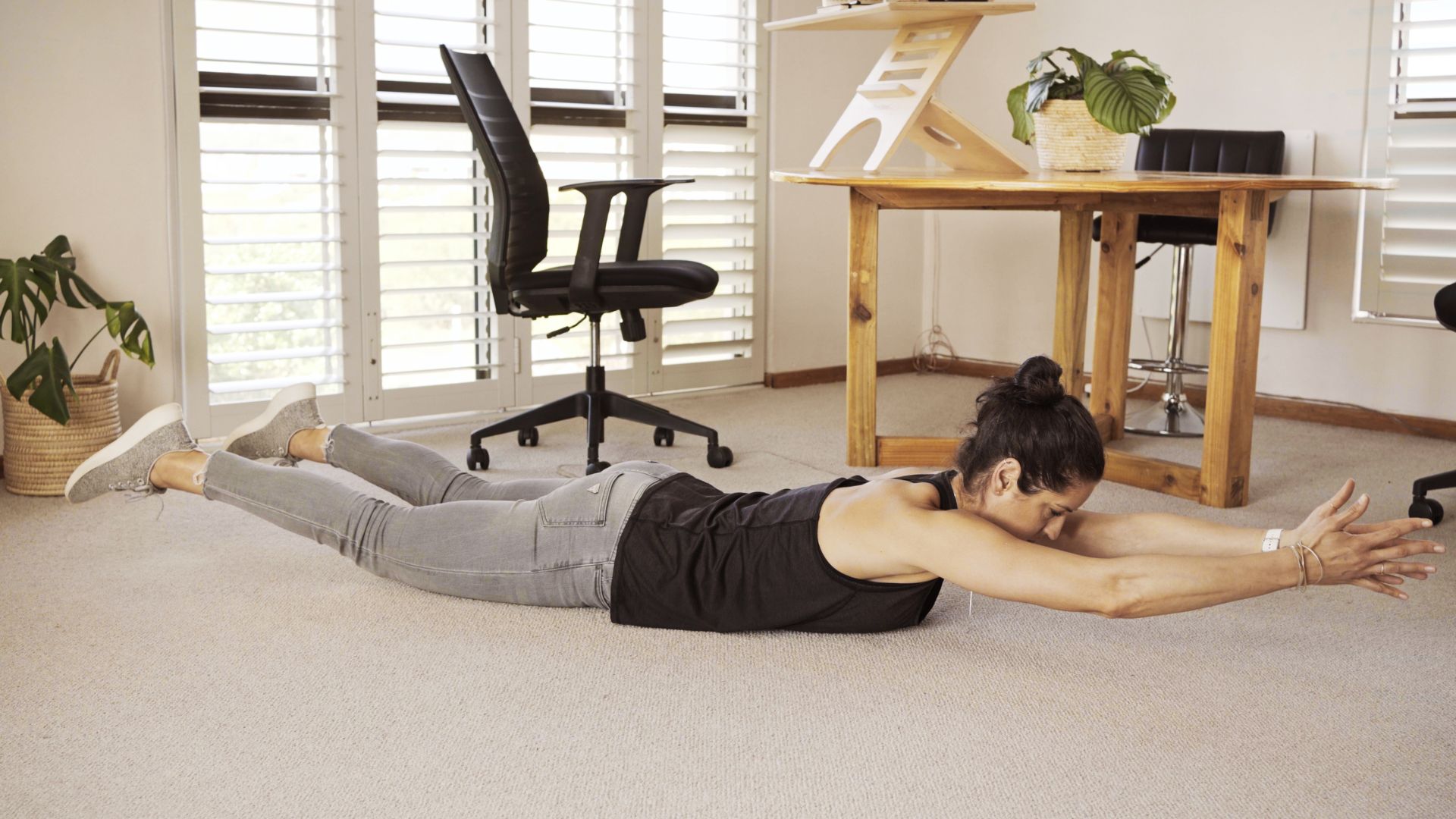This overlooked New Year's resolution could help you lose weight
Skip the gym and forget the HIIT session – a daily 30 minute walk should be your New Year's resolution


Lots of people set New Year's resolution that center on losing weight. While it might be tempting to map out an aggressive workout routine to kickstart your journey, we're here to suggest an alternative: a daily 30 minute walk.
It's easy to dismiss the activity because it's so gentle, but there's plenty of research showing that it can genuinely help with weight loss programs. Plus, it has a very low barrier of entry – all you need is a pair of the best walking shoes strapped on and you can get a great walking workout.
To get some tips and insight, we spoke with Jason Deutchman, an NASM-Certified personal trainer.

Jason Deutchman is a former professional basketball player and NASM-CPT, who specializes in functional movement training and injury prevention. He has over five years' experience as a trainer in the health and wellness space along with a previous career in athletics. In addition to his PT work, he also founded US-based brand Yoga Strong.
Is walking good for weight loss?

If you want to lose weight, you need to achieve a calorie deficit. This means that you'll need to consume fewer calories than you use in your day-to-day activities.
Sounds simple, right? But it's actually hard to sustain this for a long period of time, because being in a calorie deficit can make you tired, grumpy and a little resistant to the idea of putting on your gym kit. This is where walking can help, as it's much less demanding than a full-throttle workout.
Steadily increasing your number of steps a day is a sure-fire way to gently increase your energy expenditure, which helps maintain that calorie deficit. Research from the London School of Economics also found that people are more likely to have a lower weight if they regularly engage in high-impact walking over other vigorous activities, so you really don't need to be hitting the gym every day.
Deutchman is confident that a daily walk can play a positive role in weight loss, too: “Studies show that using walking as the primary activity for weight loss can result in significant reductions in body fat, increased weight loss, and improved cardiac function."
Get the Fit&Well Newsletter
Start your week with achievable workout ideas, health tips and wellbeing advice in your inbox.
How much walking do you need to do to lose weight?
In order to lose one pound of fat, you need to create a calorie deficit of 3,500 calories. If you think about this in terms of losing one pound per week, this works out to a deficit of 500 calories per day.
It's difficult to estimate how much walking you'd need to do to burn through 500 calories, as this will be influenced by individual body composition. According to Harvard Health Publishing 30 minutes of walking at a moderate pace of 3.5 miles per hour (17 minutes per mile) burns 107 calories for a 125-pound person, 133 calories for a 155-pound person and 159 calories for a 185-pound person.
Deutchman also suggests the following as a rough guide: "An easy walk will burn approximately 5 calories per minute, while a faster paced walk will burn approximately 8 calories per minute."

Does this mean you should do an extra hour of vigorous walking every day? Well, not exactly. Most trainers suggest that you cut calories and up your activity levels if you want to lose weight. Deutchman actually recommends aiming for an extra 30 minutes a day or 200 minutes a week. The rest of your calorie deficit can be achieved through diet restrictions.
Research also suggests that 30 minutes is the sweet spot when it comes to using walking for weight loss. A female-focused study published in the International Journal of Obesity suggested that there was no significant health and weight loss benefits to walking an additional 60 minutes per day over walking an additional 30 minutes a day.
How to set a walking New Year’s resolution
Deutchman advises that you start by setting yourself a time-oriented goal: "This removes variables such as speed without impacting the overall intent." After you've managed to achieve this, increase the difficulty slowly by increasing your time.
He also suggests setting a New Year's resolution of simply walking every day, as starting and maintaining a routine is one of the biggest hurdles you need to overcome if you want to achieve and sustain weight loss.
“When embarking on a new exercise regimen, more is not always better," he says. "Listen to your body and do not push yourself beyond your limits in regards to time, pace, or distance. It’s better to slowly increase your threshold daily/weekly in order to prevent injuries and maximize the benefits of walking.”
Amber Sayer is a Fitness, Nutrition, and Wellness Writer and Editor, and contributes to several fitness, health, and running websites and publications. She holds two Masters Degrees—one in Exercise Science and one in Prosthetics and Orthotics. As a Certified Personal Trainer and running coach for 12 years, Amber enjoys staying active and helping others do so as well. In her free time, Amber likes running, cycling, cooking, spending time outside, and tackling any type of puzzle.
-
 You don't need any equipment to improve your posture—just these three back-strengthening moves
You don't need any equipment to improve your posture—just these three back-strengthening movesThese three exercises will strengthen key back muscles
By Jennifer Rizzuto
-
 "If I could choose just five moves to future-proof my body, these would be it"—A trainer says this longevity workout will help you build lasting strength and mobility
"If I could choose just five moves to future-proof my body, these would be it"—A trainer says this longevity workout will help you build lasting strength and mobilityBy Lou Mudge